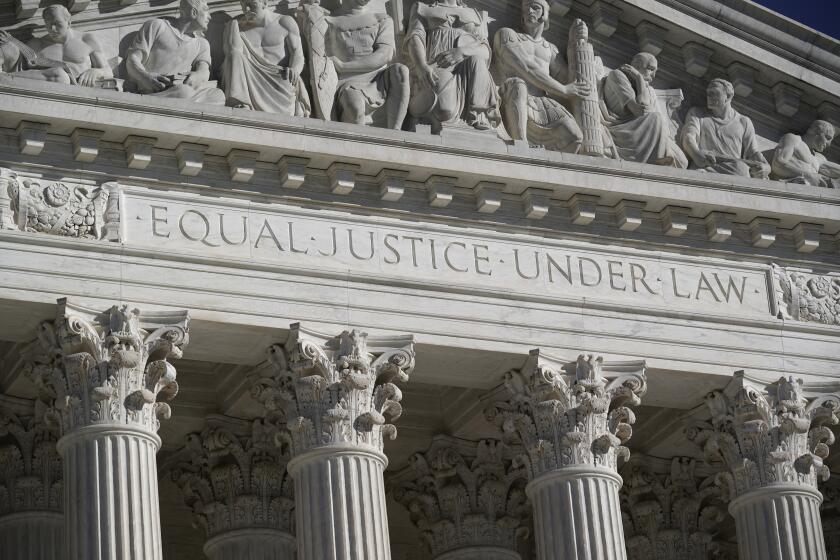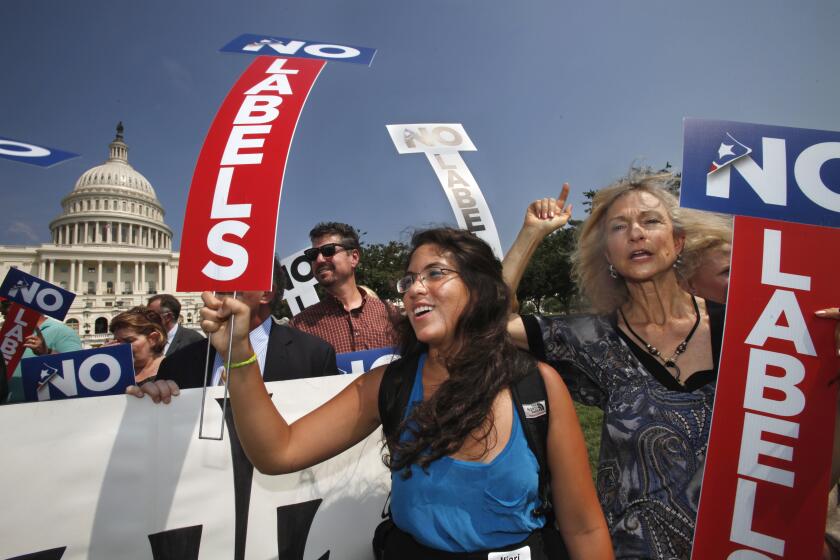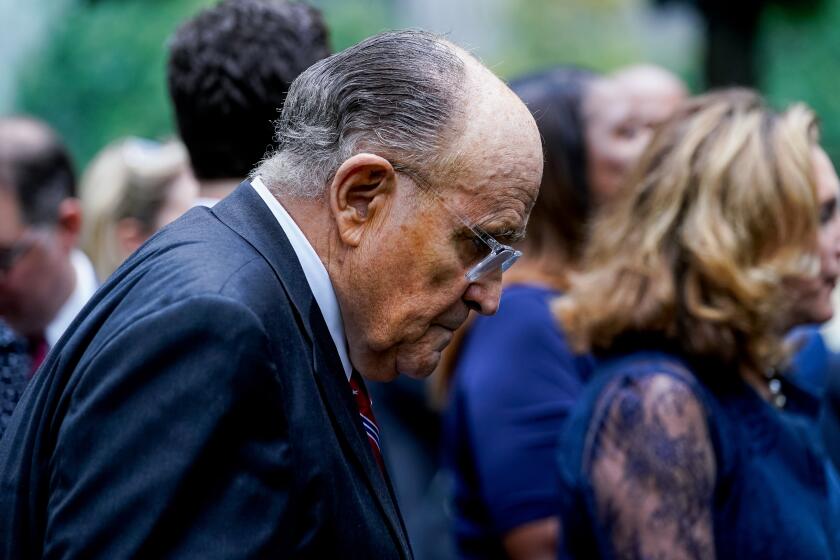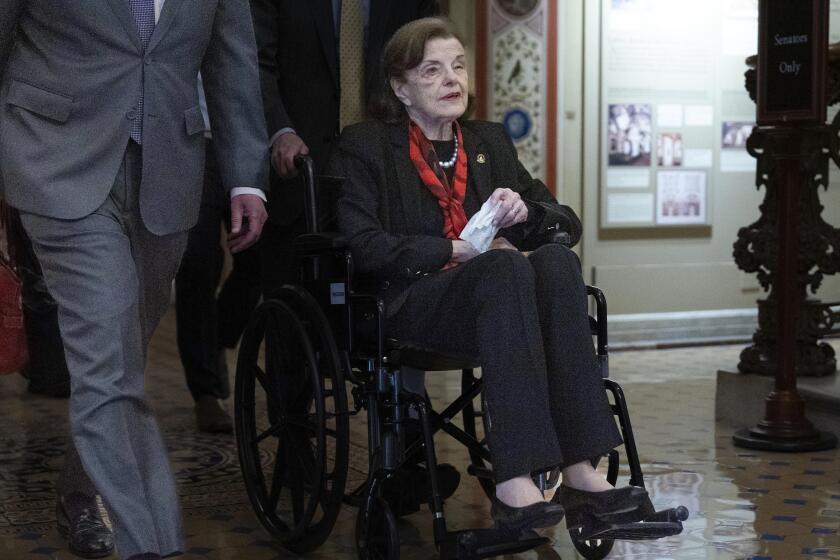Column: One last opinion
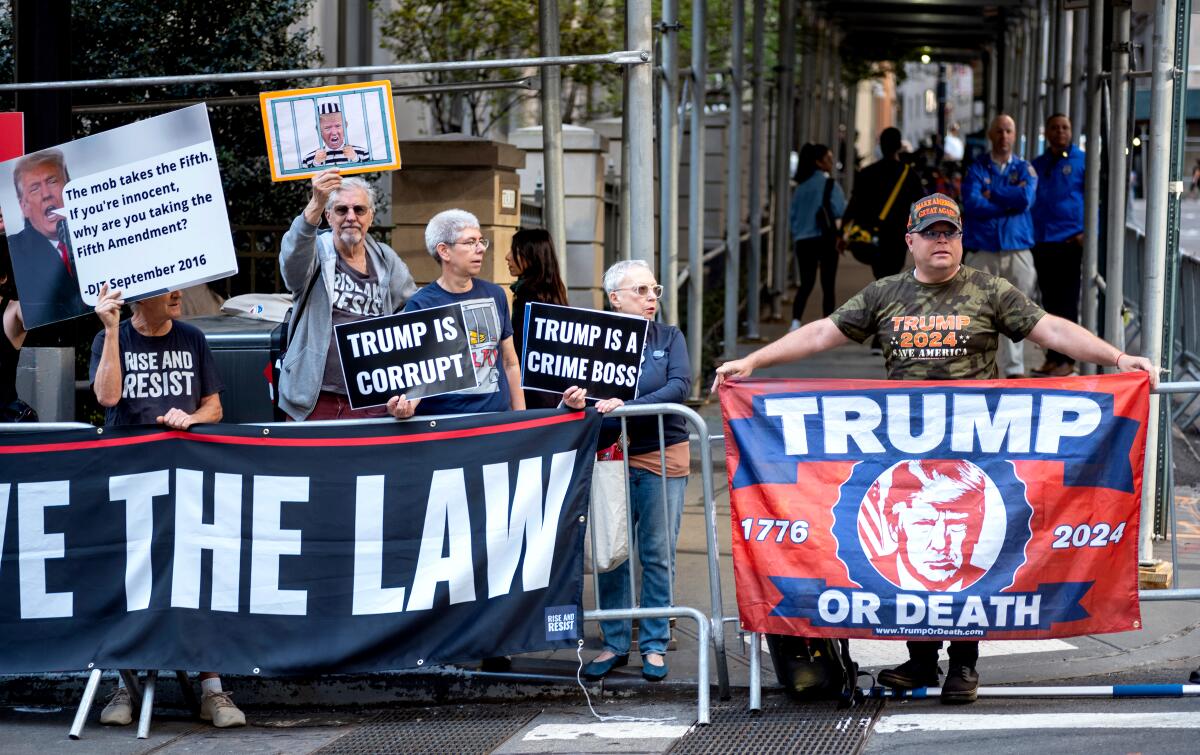
This will be my last column.
I’ve been writing on the op-ed page of The Los Angeles Times twice a week since April of 2020, which means more than 150 weeks and more than 300 columns on everything from Donald Trump and Joe Biden to the uses and abuses of American history, the immorality of out-of-control income inequality, the history of telephone hold music, the new scourge of mosquitoes in Southern California and how the U.S. Constitution got broken. Before that, I was the editorial page editor of The Times for 11 years.
That’s a lot of opinions.
Opinion Columnist
Nicholas Goldberg
Nicholas Goldberg served 11 years as editor of the editorial page and is a former editor of the Op-Ed page and Sunday Opinion section.
It hasn’t been an easy time to be writing about the world. Considered opinion is out of vogue. Readers are angry and polarized. Democracy is in jeopardy, extremism is on the rise and a new Cold War is sneaking up on us. Armies are fighting again in Europe and climate change is bearing down. No one has much patience for nuance or for listening to those with whom they disagree. A belligerent certitude rules the day in the United States, especially on the right but also, too often, among progressives.
In the world of journalism, we live in an era of clicks and financial distress. And in the realm of public opinion, those who yell the loudest are rewarded, as you can see every night on the cable news networks. Civility, compromise, tolerance and other fusty concepts from smoother-running days are mocked as forms of surrender.
Democrats and Republicans increasingly see each other as close-minded, dishonest and less intelligent than other Americans, according to a Pew Research Center report last year. Worse, 72% of Republicans see Democrats as “a lot or somewhat more immoral” than other Americans, up from 47% in 2016. Sixty-three percent of Democrats say the same about Republicans, up from 35%.
Justice Sandra Day O’Connor’s 2003 prediction that affirmative action college admissions would only last 25 more years may come true if the current court has its way. That would be tragic.
About a year after I began writing the column, New York Times columnist Frank Bruni wrote his final regular op-ed essay. He said he regretted being snide too often, and taking easy shots at political adversaries. He feared that columnists contributed to the “toxic tenor of American discourse.” And that we too often ignored “ambivalence and ambiguity.”
I took that to heart and tried not to do the same. Not that I didn’t spew my share of outrage — about the Jan. 6, 2021, assault on the U.S. Capitol, for instance, and about climate change, political hypocrisy and what I see as the wrong-headed and dangerous policies of ultraconservatives in Washington. But I also tried to speak up on behalf of the kind of reasonable cooperation and rational engagement that might help put American democracy back into working order.
That didn’t win everybody over. I still received regular hate mail. “Hope you get Chinese virus and suffer for lying to people … really do,” wrote one reader. (Admittedly, I had just called Trump “vindictive” and “irresponsible” and “averse to complex thinking.”) And this one: “Keep your mouth shut, kike.” And “libturd,” “pathetic,” “FOS.”
But I also got enough thoughtful responses, including from people who disagreed with my positions, to know there are still Americans who value serious discussion of complicated social issues. My faith in people was battered but not broken.
The centrist political group No Labels is threatening to put up a ‘unity’ candidate for president. But that’ll probably just reelect Trump.
Looking back at my own mistakes, I sometimes didn’t take a strong enough stand, failing to come down firmly on one side or the other. Sometimes nuance, ambiguity and calls for civil discourse are necessary; other times they’re merely cop-outs.
The columns I most enjoyed writing were the ones in which I sought to address off-the-beaten-path subjects that didn’t lend themselves to easy answers, where I tried to listen with an open mind to different points of view before drawing my own conclusions.
Should Boston let a Christian flag fly from its City Hall? Should the Supreme Court be barred from declaring laws unconstitutional? After 22 years in prison, had a South African anti-apartheid fighter who took early release in return for forswearing violence done the right thing?
One subject about which I could not be open-minded was Donald Trump and those who empowered and embraced him. Trump, Trumpism and the threat they pose to the United States are the defining issues of our era.
Ugly new accusations and graphic details continue the United States’ deep slide into embarrassing tabloid territory.
When Trump first came into office, I wrote in an editorial series, “Our Dishonest President,” that what was worrisome about the new president was not so much his positions, policies or ideology — but Trump himself.
“He is a man so unpredictable, so reckless, so petulant, so full of blind self-regard, so untethered to reality that it is impossible to know where his presidency will lead or how much damage he will do to our nation,” I wrote.
Trump’s New York indictment for allegedly falsifying business records, his arraignment this month in the federal classified documents case, his two impeachments — and now his terrifying efforts to regain power — confirm that assessment. His incessant lies and his furious efforts to subvert the 2020 election show he is aberrant and uniquely dangerous.
Perhaps my greatest regret about the column is that I didn’t write enough about climate change, which experts believe will lead not only to more of the raging storms, droughts, deadly wildfires and heat waves we’re already getting used to, but also very possibly to famine, mass migration, collapsing economies and war. It is the greatest threat facing the planet, yet I, like others, have written about it only sporadically, and often as if it were just one of many nettlesome issues like taxes, crime or schools. Perhaps I should have written about nothing else.
The candidates running to succeed California’s senior senator stand to lose or gain if she resigns or sticks it out to finish her term.
And a final word about the state of journalism: Many newspapers are shrinking and flailing, local news faces an existential crisis, investigative reporting has been cut back, opinion journalism has too often been reduced to name calling — and objective, fair, credible coverage of events is under attack from the right and left.
These are dangerous developments because it is journalists who provide much of the information and context that enable citizens to participate knowledgeably and effectively in a democracy. Let’s stand up and support great reporting where it is still being done.
This column has run its course. It’s been an honor to write it. I will miss it. As I move on, I continue to wonder what, when or if something will put us back on track as a country. I am not certain we can continue for too much longer down this path of dysfunction and discord.
More to Read
A cure for the common opinion
Get thought-provoking perspectives with our weekly newsletter.
You may occasionally receive promotional content from the Los Angeles Times.

